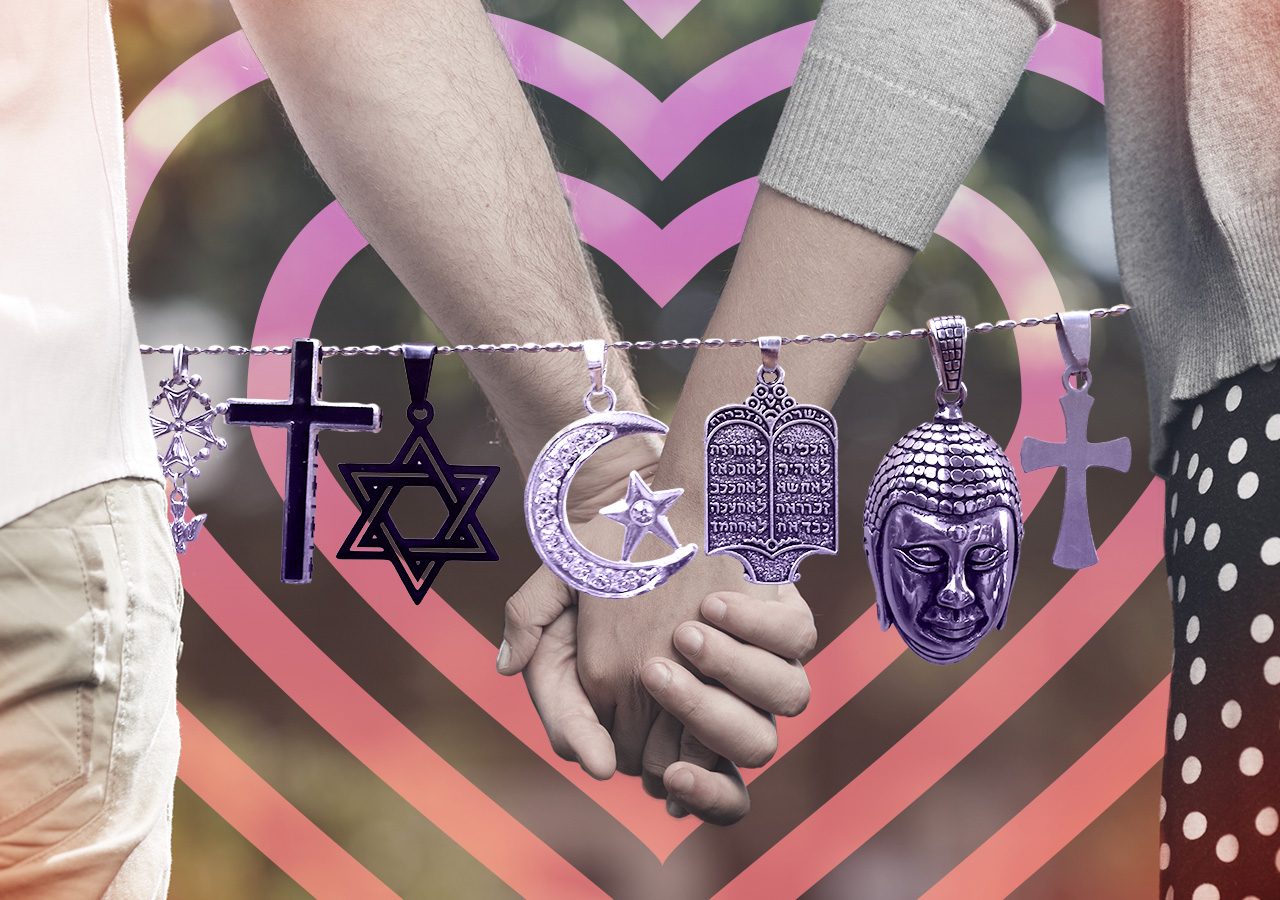SUMMARY
This is AI generated summarization, which may have errors. For context, always refer to the full article.

Dating has never been easy, given the many factors that people weigh in while looking for a partner, such as political beliefs, cultural backgrounds, and financial capability.
Among these considerations, religion remains to be one of the biggest deciding factors for people entering a relationship, with others even saying that dating someone of a different faith can be a deal-breaker. Given how faith, or the lack thereof, plays an integral part in one’s identity, it’s no surprise why many automatically write interfaith relationships off.
We asked Rappler readers on their thoughts on dating someone of a different faith, and their experience navigating such relationships. Here’s what they had to say:
Know more about your faith
For most interfaith couples, dating someone of a different faith has led them to a deeper understanding of their own religious identity. Since they had to discuss their beliefs and practices with their partner, they were able to better understand why these aspects really mattered to them.
After all, it’s detrimental to ask your partner to make compromises about their own beliefs when you aren’t sure about your own.
In the beginning, interfaith couples could talk about what their faith means to them, how it has impacted their life, and how it was like growing up in a religious household.
They could also discuss the following: are there spiritual beliefs and religious practices they hold onto tightly? How about those that they’re personally more flexible with? Did they change their religious beliefs over time? If so, why?
By having such conversations, one would be able to help their partners perceive their faith. Individuals who have a better understanding of their own faith are also better equipped to work on their religious disparities with their partner.
Strike a balance between your differences
Interfaith couples must find common ground to address their religious differences. Avoidance is not a sustainable option as it won’t solve possible conflicts.
“Acknowledge and accept that you both grew up with different beliefs. Both should have great respect for each other’s spiritual beliefs,” one Facebook comment read. “Always allow yourselves to have open conversations about it and during this process, be patient and kind to one another.”
Another Facebook commenter said: “Respect is the key. Make an effort to understand and learn about your partner’s belief.”
Have open, mindful, and frequent conversations about what’s important to each individual, especially since, as the relationship progresses, couples will eventually have to make decisions that will be highly influenced by their faith.
For instance: Which holy days should be celebrated? What services should not be missed? How do you want to get married? Is it acceptable to have sex outside of marriage? How do you plan to raise children?
While each partner won’t be able to get what they want every time, it would also be helpful to remain respectful and flexible with the demands or matters that their partner would like to consider.
Generally speaking, though, it is much easier for couples to address the differences in their faith if one individual feels a lot less strongly committed to their beliefs.
“We make it work because we agreed that people do not need religion to be good,” another Facebook comment read. “You are good based on your morals and actions.”
However, if two people each feel strongly committed about their individual belief, there’s a chance that it could potentially create some tension in the relationship, especially if both just ignored each other’s differences. Come up with a plan, then, to deal with these incompatibilities. The key is for each individual to compromise on matters that won’t affect the core of who they are as a person of faith.
Aside from the differences, be open also to explore the similarities between your values and belief systems.
Learn which comments from other people to accept
Interfaith relationships are also often met with scrutiny and prejudice, especially from those who are more observant of religious practices.
Young people are usually pressured by older family members to date someone of a similar religion as themselves, with some even threatening to disinherit them if they don’t do so.
And while some relationships eventually succumb to the pressure, other couples push through with their commitment despite the presence of outside adversity.
For them, it’s vital to not allow family members, friends, or faith leaders to meddle in their relationship if they won’t even respect the way they’re handling their differences.
Don’t think that converting is the only solution
Admittedly, dating someone of a similar religious affiliation might be easier, but understand that differences in belief are not irreconcilable.
If one partner is open to the idea of converting to another religion, make sure that they’re doing it out of their own interest and not because they were forced into changing their religious affiliation and practice.
Best to assess first if such a huge leap is something that you’d really want to do. Start with going to their services, observing their practices, and talking about their religious experiences. It’s unfair to reject or commit to something that you have little understanding of or have yet to experience.
And even if neither of the partners decide to convert fully, continue showing genuine interest in each other’s practices as a way to communicate more with your partner. – Rappler.com
Add a comment
How does this make you feel?
There are no comments yet. Add your comment to start the conversation.